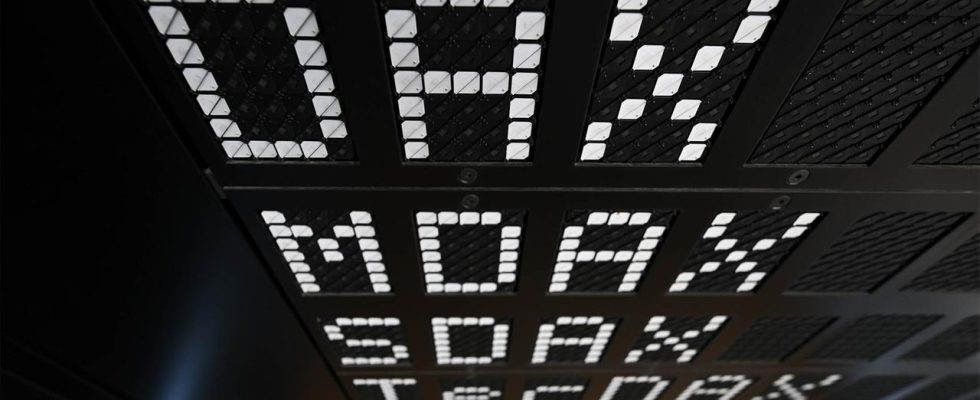background
The “world index” MSCI World is popular with many fund savers in Germany too. They invest billions of euros in funds (ETF) based on the stock index. But it is increasingly viewed critically.
Among the index funds, or ETFs for short, which are becoming increasingly popular among German stock fund buyers, funds on the MSCI World are at the top of the wish list. However, experts are now criticizing the composition of the stock barometer in particular.
High return benchmark
The index from the provider MSCI has “worked” well as a basis for buying stocks for decades. It provided the owners of the fund shares with high annual returns. For fund managers who offer classic equity funds, it still serves as a comparative value, i.e. a “benchmark”, for their own success.
There are good reasons why index funds on the MSCI World are among the most popular fund investments among Germans, as expert Ali Masarwah from the fund platform Envestor explains: “The MSCI World is an index that brings together the most important stocks in 23 industrialized countries, weighted according to Stock market size of these companies. As a result, as an investor you have a securities portfolio with around 1,500 shares.”
Cheap and widely distributed
The spread over a large number of individual stocks in which the product invests speaks for a world index as a basis for wealth creation or retirement provision. Other index providers such as the British FTSE Russell have also developed such global stock barometers. This “diversification” reduces the risk of strong price fluctuations without affecting the performance of the index and thus the index funds. In addition, the fees for index funds are on average significantly cheaper than for conventional fund products, which have to pay their own fund management.
The principle of weighting stocks in an index based on their market value has also proven successful over decades. This index rule also applies to the DAX or the European selection index EuroStoxx 50. At the MSCI World, however, the weighting has led to a certain concentration in recent years: US stocks dominate the index like never before (see chart). The strongest companies in terms of sales and profits come from the USA.
“Pretty big risk”
A development that certainly entails risks, says Masarwah: “It was always justified to have the USA so large and prominent in the index, but the weight is now at 70 percent. And that’s a pretty big risk. In addition, that the big tech platforms make up a very large weight in this index. And last but not least: 70 percent USA means – 70 percent dollars.”
If you look at the weighting of the companies in the MSCI World, you can see that a few large high-tech companies make up a significant part of the index due to their high stock market value. The five largest companies alone account for almost a fifth of the entire MSCI World (see graphic), which contains a total of almost 1,500 stocks. So if technology stocks were to crash on the stock market, it would move the entire index significantly downwards.
“Strongly linked to the development of the USA”
Independent investment advisors are now also pointing out the increasing “imbalance” in the world index, such as Katharina Lawrence from the Hesse Consumer Center explains: “Our goal is for people to understand, when they take an MSCI World, that the MSCI World is very closely linked to the economic development of the USA. On the other hand, there are other indices that also include China or Brazil.
So if you want to reduce the dominance of the USA in the MSCI World and thus also in your own portfolio, you have to think again. One way to do this could be to give greater weight to regions that only play a minor role in the index. For example, in addition to the MSCI World, a fund with a focus on Asia can change the weighting away from the US giants.
Emerging markets are completely missing
But you don’t have to look far away, says fund expert Masarwah: “Let’s take the Eurozone for example. The Eurozone makes up around ten or twelve percent in the MSCI World. That’s pretty low when you consider that the Eurozone is “It is a huge economic area where healthy companies also work.”
Stocks from emerging markets, the so-called emerging markets, are not included in the MSCI World at all. These include South Korea and Taiwan. These emerging markets also have their own indices and therefore index funds.
The index providers, which include MSCI, US competitor S&P and the British FTSE Russell, have even developed “ex-USA” indices that explicitly exclude US companies. The basic idea is that fund buyers should decide for themselves how high they want to weight the US share in their portfolio and then also buy a corresponding USA index fund.

